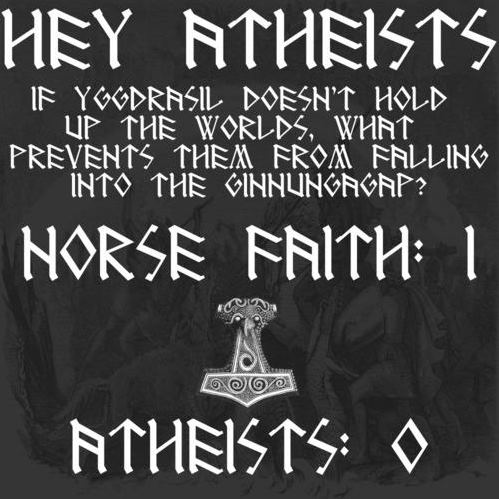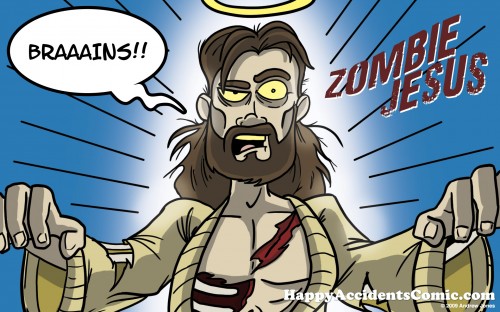After attending the Global Atheist Convention, John Wilkins vaguely disagrees with me on community building. I say vaguely because he doesn’t really disagree with the goal, but because he thinks I’m missing something essential in defining community.
First of all if you want to build a community you have to have a set of shared values, rituals and practices. These are, if you like, the nature of the community. Since atheism is defined in various ways, that is difficult, and PZ tried to define the atheist community in terms of truth, autonomy and community. The problem is, these are values also held by many other communities, and they are not the very same communities. I know many liberal religious folk who also value science, truth and personal autonomy, and many atheists who do not.
I disagree here in two ways: First, sharing values with other communities is not a problem. John and I would both agree that there are good values in Christian and Islamic and whatever communities — if we go around saying atheists can’t do that because Lutherans do it, too, we’ll end up refusing to urinate in private and adopting the habit of kicking small children. We should borrow the best from other communities (which does not include building extravagantly silly cathedrals.)
Secondly, I’d disagree that everything I listed is shared, and I specifically include truth. I also know many religious people who say they value truth…and who then insist that triune gods who manifest themselves as ritual sacrifices in the body of a man are also true. It is also the case that religions by their nature lack the tools for evaluating truth by an external measure outside their practices and holy books, which is why they are led into such silly beliefs…false ideas that Wilkins then goes on to acknowledge are valuable because of their falsity.
So while I applaud his picking these values, he hasn’t quite picked out the identifier and community builders of an atheist community.
What does achieve this? Well, we can look to other successful community building traditions. One of the most obvious is, of course, religion. What is it that makes religion so socially persistent and able to withstand thousands of years of change? My answer, the one I gave to PZ, was the Costly Signalling hypothesis: what makes a religion stable and causes social cohesion is not the ideas they share, but the absurd and contingent flags they carry. The reason why, for example, a Baptist can go anywhere in the world and find a community among any ethnicity, language, or class, is that what unites Baptists everywhere are a set of practices and beliefs so silly that one can only share them with other Baptists. That is, by the way, why creationism is so socially adaptive: the only folk you can share it with in practice are those who are in your community. Everybody else just laughs at you (yes, Xenu. I’m looking at you).
The costly signalling hypothesis is an interesting one and I wouldn’t reject it out of hand. But implementing it is a different matter, and I think atheists already do. I also think it has some problems.
What is the cost creationists pay for their beliefs? There isn’t really any. They aren’t discriminated against, they don’t get beat up by roving gangs of militant atheists, historically and currently they are in the majority. Their beliefs don’t have consequences on their work (as long as they aren’t trying to be biologists) or their family life; they don’t have to make any personal sacrifices to revel in their ignorance. It is a cheap signal. It’s also an easily hidden signal — I couldn’t walk out onto the street and point to any of the creationists walking by unless I knew them personally.
Now there definitely are costly religious signals. I think the first tribe that decided to mark themselves off by chopping off their foreskins was most decidedly doing something radical, and really was making it expensive to join their group. Of course, now it’s all over the place and in some cultures is done so casually that it marks nothing at all (see also the point above about values not having to be unique). I think also cheap signals can be made costly by the environment — the trivial differences between Catholic and Protestant rituals could cost you your life in Ireland, once upon a time, for instance. But you could say the same thing about atheism: professing disbelief could, once upon a time, get you a toasty spot tied to a stake, as could not being aware of the theological significance of Jesus’ human or divine nature. Costliness is contingent.
Sure, we could declare that all True Atheists™ would wear a purple hat with antlers. It would be impractical, ugly, and obvious, and it would represent a truly costly badge that no one else would don, but it would also lack any organic connection to our beliefs or community. Also, the idea of wearing an absurd flag of our identity is a violation of fundamental rational values and shouldn’t be promoted. I do not think any such unnatural proposition would ever fly in this community.
On the other hand, there are rational beliefs that have just as much of a social cost as the creationists absurdities. They mark us just as thoroughly as a belief in the trinity.
We reject the notion of an afterlife. Dead is dead. No consolation in a happy hunting ground after the misery of cancer ripping your body apart, or a heart attack flooring you in an abrupt flash of pain. Many people outside our group find that shocking to the point they deny that we could possibly believe it.
We consider humans to be inconsequential and accidental on a cosmic scale. The universe does not love us or care about us, we aren’t special, we do not have an all-important destiny. That chills others, too.
We deny the existence of an objective morality. Morality is emergent and contingent; it’s the product of interactions between humans, it can change, and it really does have to be worked out mutually and iteratively, without binding arbitration from a superpowerful authority. This difference is a huge source of othering by Christians and Muslims — it’s the number one accusation I see levied by those tribes against our tribe. How can you deny that it is a costly signal while suggesting that believing in a 6000 year old earth is?
John also mentions his recent knee injury that has laid him up, and that there is no congregation of like-minded agnostics who gathered together to send him flowers, send a baffled and muddled agnostic chaplain to visit, or organize a circle of dinner deliveries. He’s reliant on a couple of personal friends. But, I would add, he also benefits from a secular state that provides an essential minimal level of support. Why should that be dismissed as an aspect of community? It’s a bit impersonal, admittedly, but it’s there. I think it’s also much more reliable than depending on a loose association of fellow believers — I notice that the Baptists aren’t lining up to help Wilkins out now, despite his past association, probably because his ideas led him to depart from their herd. Do we want the kind of community that demands conformity in order to get the essentials of life?
But otherwise, yes, it would be good to have the kind of godless community that fosters friends and fellowship, so when your gimpy knee turns you into a crippled wreck they occasionally stop by with a life-sustaining bottle of beer or hour of conversation or movie for the evening. We don’t have that yet. We need the numbers to have an adequate density of non-believers, and some regular cause to focus community and make us aware of and care for each other. I would agree with that.
But an arbitrary costly signal won’t do that at all. What we need are more positive reasons to routinely associate. How about suggestions for that? Purple hats with antlers are not the answer.






